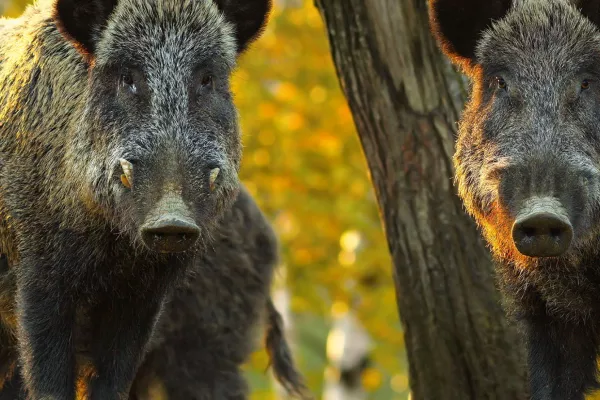
Biosecurity measures against African swine fever
The highly infectious characteristics and the lack of effective treatments or vaccines make African swine fever (ASF) one of the most feared epidemic diseases in the pig farming sector. Effective biosecurity measures against ASF are thus of the greatest importance. However, good planning, outlined procedures, customised training and the right tools can significantly reduce the risk of infection. Here are our tips!
Planning is the golden key
First of all, it is strongly recommended to do a thorough audit of your current biosecurity protocol on all levels. In doing so, always approach biosecurity with all of the potential risks clearly in mind. During the entire planning take account of your veterinarian, the management and your own personnel. Make sure that they are not working at other farms. Consultants, members of the management and external sales representatives are all increased risks, because they travel from farm to farm.
In addition, cattle farms must also regard transport as an important factor. Make sure that trucks entering your site were not earlier at (possibly) contaminated farms. The delivery and import of equipment must be planned, just like the removal of cadavers, manure and other waste. In addition, review the control of wild animals, vermin and other animals.
Procedures for optimal protection
Wild boars, pigs, deer and foxes, … without fences, they can easily encroach on your terrain. So make sure that a secure barrier or fence is installed along the borders of your land in order to prevent such large animals from being able to enter. This measure must actually be implemented throughout the farm. Also between the tail lift and the cattle truck, between the dirty and clean sides in an access system, or between the ground and the cab of an animal feed transporter. All relevant dividing lines must be identified, and correct procedures must be set up there for achieving and applying this division.
But it doesn´t stop there. There are still many other procedures that must be complied with as well. Just think of the proper use of shower facilities, correct procedures for leaving and re-entering the site, decontamination and disinfection of equipment that arrives on the farm, disinfection after risk vehicles have been near the farm and monitoring of the behaviour of contractors and personnel while picking up manure.
Examples of good procedures on a contaminated farm, where risks have been identified, are: control of personnel movements around the farm, regular cleaning and disinfection of running lines after transport of pigs, correct removal of manure and manure residues, and high-quality cleaning and disinfection between the rounds.
Finally, for the entire protocol there is another important rule that must be complied with at all times: never exchange anything between infected and uninfected farms, whether it is transport, personnel or equipment.
Training & tools
Training of the management, personnel, drivers and visitors is an essential part of every biosecurity programme. It is important that each team member understands why biosecurity measures against ASF are so important. Only when everyone understands how easily the virus can spread will they know what they have to do.
Where necessary, therefore, biosecurity officials must train, evaluate and retrain. One of the challenges here is to create a high level of awareness and focus on the necessity of being kept informed of developments. Complying with agreements is thus always of great importance. Sooner or later, not complying with them will lead to problems in the entire area of biosecurity.
Moreover, this biosecurity will only be optimal if the right tools are present. Given that vehicles are the most important vector by which ASF is spread, it is essential that a well-equipped location for cleaning and disinfecting trucks be present. By means of disinfecting wheel wash systems, manure removal can easily be done on site, thus preventing cross-contamination.
Other examples of good biosecurity tools are decontamination arches or mounted disinfection systems on the wheels of the lorry. When approaching farms or leaving grounds they can immediately decontaminate the wheels. RinDis is happy to be your partner for this!
Want more information about such decontamination and disinfection systems? We would be delighted to give you more detailed explanations about the various possibilities. Contact us!
Request an offer
Ready to hit the road clean as a whistle? Request your offer today and learn how RinDis can help you.
You can also contact us via
info@rindis.be
+32 (0)50 69 85 50
Kachtemsestraat 165
8800 Roeselare
Belgium